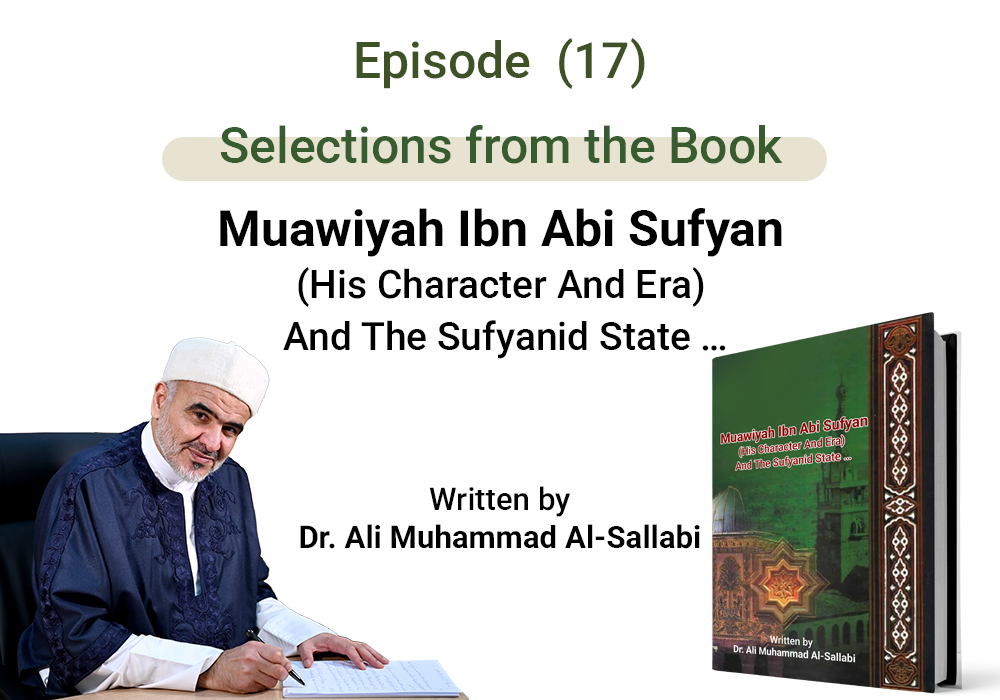The Commander Of The Faithful, Ali, Forbidding Cursing Muawiyah And The People Of Al-Sham
Selections from the Book Muawiyah Ibn Abi Sufyan (His Character And Era) And The Sufyanid State …
Written by Dr. Ali Muhammad al-Sallabi...
Episode (15)
It is narrated that when Ali — may Allah be pleased with him — learned that two of his companions were openly cursing Muawiyah and the people of al-Sham, he sent for them and told them to stop what he had heard they were doing. So they came and said: “O Commander of the Faithful! Are we not upon the truth and they upon falsehood?” He replied: “Yes, by the Lord of the Kaaba, the Sacred One”. They said: “Then why do you prevent us from cursing and insulting them?” He said: “I dislike for you to be among those who curse excessively. Instead, say: O Allah, spare our blood and theirs, reconcile between us and them, and guide them away from their misguidance until the one ignorant of the truth comes to know it, and the one persistently engaged in error turns away from it.”
As for what has been claimed — that Ali used to curse Muawiyah and his companions in his qunut prayer, and that Muawiyah, when he performed qunut prayer, used to curse Ali, Ibn Abbas, Hasan, and Husayn — this is not correct. The Companions — may Allah be pleased with them — were more keen than anyone else to adhere to the commands of the Sharia, which forbade insulting or cursing a fellow Muslim.
It has been narrated from the Messenger of Allah (peace be upon him): “If anyone curses a believer it is like murdering him” and “The believer is not a slanderer, nor does he curse others” and “The invoker of curse would neither be intercessor nor witness on the Day of Resurrection.”
Moreover, the narration that mentions the Commander of the Faithful cursing Muawiyah and his companions in his qunut, and Muawiyah cursing Ali, Ibn Abbas, Hasan, and Husayn, is not authentically established from the standpoint of its chain of transmission. It includes Abu Mikhnaf Lut ibn Yahya, a fanatical Rafidi who is not trustworthy in his narrations.
Even in the most authentic books of the Shia themselves, there is prohibition against insulting the Companions. Ali himself rejected the idea of cursing Muawiyah and his group, saying: “Indeed, I dislike for you to be among those who curse. But if you were to describe their actions and mention their condition, that would be more accurate in speech and better as an excuse. And instead of cursing them, say: O Allah, spare our blood and theirs, and reconcile between us and them”.
So this cursing and declaring others disbelievers was not from the guidance of Ali — as is admitted in the most authoritative books from the Shia perspective.
- Ali Muhammad al-Sallabi, Muawiyah Ibn Abi Sufyan (His Character And Era) And The Sufyanid State, pp. 268-270.
- Investigation of the positions of the Companions (2/232).
- The Origins of Shiite Doctrine (2/934).
- Al-Bukhari, Book of Etiquette (7/84).
- Muslim (4/2006), No. (2598).
- Long reports, p. 165.
For further information and review of the sources for the article, see:
The Book of “Muawiyah Ibn Abi Sufyan (His Character And Era) And The Sufyanid State” on the official website of Sheikh Dr. Ali Muhammad al-Sallabi:






